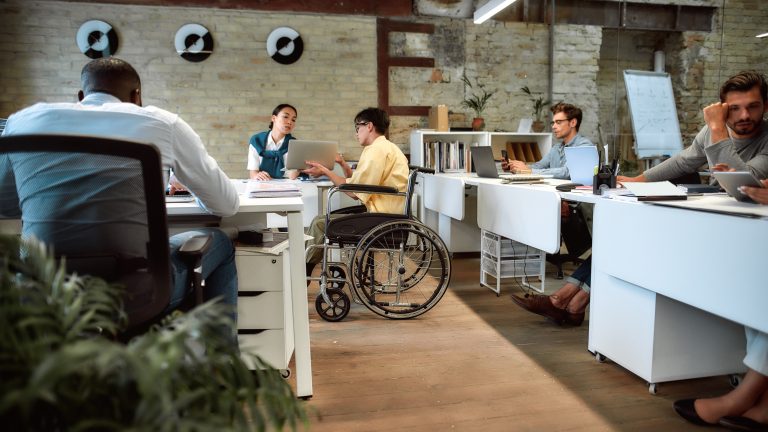William Higham shares insights with Alan Hosking as to what he sees coming in the next decade.
How will HR evolve in the next decade?
It’s a fascinating time in terms of Human Resources and the workplace, where so many changes are happening.
It’s one of the areas that is set for the biggest change we’re likely to see over the next five to 10 years, in terms of where people work, who works there, what they work on, and the way they work – there are huge, huge changes afoot.
Some people are going to continue working from home and we’re going to have new hubs. We will see an increasingly combined workforce with fewer full-time employees, more freelancers, and organisations that are more team-based and reward-based.
So much of this is likely to change over the next five to 10 years and nobody in HR right now is unaware of that, but I think the potential scale of that change might surprise some people.
In light of this, what are your top tips for attracting and retaining the right talent?
In terms of how you can find the right people and then retain them, I think it’s important to note that, increasingly, people are looking for more than just money, and this might seem odd in a world that seems uncertain.
Surely, you’d think it’s all about money. But actually, in this period where people are beginning to reassess what’s important, we’re really starting to see that flexibility and positive community are most valuable, as people are enjoying the time spent working with other people.
Giving people a bit more freedom and autonomy is increasingly important, and the idea of people feeling that they’re working for a particular purpose is vital – it doesn’t have to be a political purpose necessarily, but some sort of joint purpose.
So, I think, if you’re an employer, look at some of these new needs and realise that customers and employees are not that far apart. An employee is also a customer of someone else. So, look at what people are caring about now compared to what they were caring about a few years ago, and start thinking, ‘Okay well, maybe if these customers are wanting this, maybe our employees want this too’.
As a consumer trends consultant, what do you think is the ‘next big thing’, and what are the dominant trends of 2021?
There are three trends, really, and I call them the three Cs which stand for control, calm and community. We’ve seen these trends appearing over the last few years, and they are all trends that COVID-19 and the lockdown have really accelerated.
During lockdown, there have been a few new trends come up and I think a few of those will fall away. But the real core of what lockdown has done to some of the big trends is either decelerate or accelerate.
I think the three big trends that we’ll see coming out of lockdown are about taking control, calming down and enjoying the community.
In the midst of all of this, people have felt a little bit helpless. I think many people feel that there are lots of things happening out of their control or even out of the Government’s control. They’re not sure the Government is doing their best for them, or that brands are doing their best.
And, because of this, I think we’re going to see more and more people wanting to get involved and take their lives into their own hands, and brands will need to reflect this. People will want to be prepared for things, and so brands will need to help them learn new skills and take control.
I also think there’s this whole idea of calming down. We’ve been running in this marathon for years, wanting to buy the latest thing, rushing our careers, and wanting everything about growth. And I think one of the things that COVID’s done is stop us in our tracks. When you stop, having been running for a long time, that is when it’s time to ask, “Am I running in the right direction? Should we keep running next time? Should we walk? Where are we going?”
I think people are starting to question the direction that they were going in before, and other things like, “Is it about just owning things? Is it about buying things? Is it about impressing my friends? Or actually, is it a bit more about friendship, what I can learn, and what I could do for other people?”
Now is a time of reflection. We’re looking back more and more and considering, “Maybe people did things better in the past,” because, certainly, the anxiety levels pre-COVID-19 were just through the roof. The depression and stress levels across the globe have been enormous. So, relaxing a bit, looking back, taking stock and deciding what’s really important and what should motivate us, are the sort of things that will be really important to people moving forward.
And then the third trend is based around that whole idea of taking stock and resetting – ‘the big reset’. This means really considering what does matter, and increasingly people are starting to see that community, friends and family are what matters.
The world is an increasingly volatile place. You don’t know if you’re going to lose your job tomorrow. You don’t know if you’re going to lose your savings. No one knows what’s going to happen, a new technological advance could even get rid of your whole industry!
In a time that’s so volatile, you start thinking, “Well, if I lost many things, what would I have left?” And so, I think, people are starting to reassess the fact that friendship, family, particular work colleagues they like, or people they share interests with, are what really matter.
Increasingly, the local community is becoming more important with so many people working from home. In the last year, people have been forced to stay in their local communities, people who might have commuted out early and commuted back late are suddenly looking at their local community and shopping in stores they never shopped in before, talking to neighbours they’ve never spoken to before.
There’s this whole idea of interacting with other people and, again, from a brand point of view, there are so many things that brands can do to help that, to bring people together and localise their offerings. There are also many ways that brands can bring their customers into a new kind of community, through actually making their brand into a community, which is a really great way of generating brand loyalty.
People can move from one brand to another these days, but, if you make them feel that they’re part of a community, that the brand is looking out for them and they feel they’re having some influence on the brand, that will be where the loyalty comes from.
Why is it important that businesses create a culture of innovation?
The world is increasingly uncertain and has now become a global village in that everything is so connected now so something can change everything. A new piece of technology, a pandemic, something connected with global warming, anything like this, if it happens in one area, it will affect all areas, whether that’s financially or literally.
Because the world is less certain, we have more and more of what we call ‘grey swans’. As many know, a ‘black swan’ is what you call something that you really couldn’t have expected, something that came out of nowhere, that no matter how good your strategy was, nobody expected it. And you have to run around and suddenly try to deal with it.
A grey swan is something that you don’t know exactly when it will happen, but you can be pretty sure it’s likely to happen. Like an airborne pandemic, for example, it certainly wasn’t a surprise that it was going to happen, perhaps it was the intensity that surprised a lot of people.
So global warming, the fact that we’re starting to see more ground-up organisations, people being more concerned about what’s happening with governments, new pieces of technology that are going to be disruptive – these are all grey swans. These are things that are likely to happen and you have to be ready for them, even if you don’t exactly know when they will happen.
For all these reasons, every company needs to be ready to adapt. If one of these things happens, you can’t just sit back and say, “We’re the top-selling brand in our sector, we’re going to be fine for a few years,” because you may not be. The leader in any market could get knocked sideways from one of these grey swans, like a new piece of technology or a new competitor you weren’t expecting. So, for all these reasons, every company now needs to have a culture that is ready to adapt to whatever new circumstances it faces and also be ready to adapt to what the customer wants coming out of that.
Companies need to be change-friendly and customer-focused. Those are the companies that are going to succeed in the 2020s and 2030s.”.
William Higham is a behavioural futurist/consumer trends consultant who has worked with Walt Disney, HSBC, BBC and Mindshare, created marketing strategies for The Rolling Stones and is the Founder of Next Big Thing. William Higham and other futurism speakers are available to book via The Champions Speakers Agency.

























